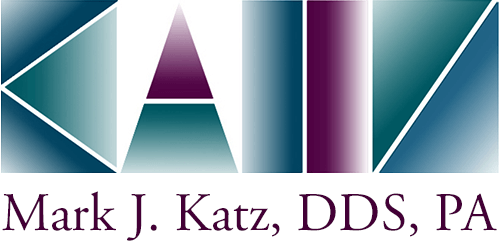How Sleep Apnea Is Connected to TMJ Disorder
Sleep apnea is a chronic disorder characterized by interruptions in breathing during the night, leading to a host of health problems if left untreated. Meanwhile, TMD, or temporomandibular joint disorder, is a condition that affects the jaw joint and the surrounding muscles. Though the two may seem unrelated, recent studies have shown there’s a connection between both sleep apnea and TMJ.
At our Greensboro, NC dental office, our sleep dentist, Dr. Mark Katz, understands both conditions should be treated before they worsen. That’s why we provide treatments to combat sleep apnea and TMJ disorder. Read below to discover the connection between sleep apnea and TMD.


What Is TMJ Disorder?
The temporomandibular joint (TMJ) is a complex joint that connects the jawbone to the skull. Your TMJs are flexible and can move in three directions: up and down, side to side, and forward and backward. TMJ disorder occurs when there’s a problem with the jaw joint or the muscles that control it. This can lead to pain and discomfort in the jaw, face, neck, and head.
The Link Between Sleep Apnea & TMJ
Recent studies have shown a link between sleep apnea and TMJ disorder. When people with sleep apnea have episodes of interrupted breathing, they often clench or grind their teeth in response. This can put extra stress on the jaw joint and muscles, leading to TMJ disorder. Similarly, people with TMJ disorder may have trouble sleeping due to pain or discomfort in the jaw or head, which can exacerbate pre-existing sleep apnea symptoms.


Similar Signs & Symptoms of Sleep Apnea & TMJ
Both sleep apnea and TMD share similar symptoms such as:
- Headaches: Both conditions can cause headaches, which can be especially severe in the morning.
- Jaw Pain: TMJ disorder and sleep apnea can cause tension in the jaw area due to the added stress and tension put on those muscles.
- Difficulty Moving Mouth: TMJ disorder can cause difficulty opening the mouth due to pain or stiffness, while sleep apnea can cause tension in the jaw muscles that make it difficult to fully move your mouth.
- Ear Pain: TMJ disorder can cause ear pain due to how close your ear canals are to the jaw joints, while sleep apnea can cause ear pain due to changes in air pressure.
- Fatigue: Both conditions can cause fatigue due to poor quality of sleep and daytime sleepiness.
It’s important to note that while there are some similar signs and symptoms, these conditions are distinct and have different underlying causes. If you suspect you may have either condition, it’s important to seek the advice of a sleep dentist like Dr. Katz for an accurate diagnosis and appropriate treatment.
Treating Sleep Apnea & TMJ Disorder
Treatment for sleep apnea and TMJ disorder varies depending on the severity of the condition. Here are some common treatments:
- Continuous Positive Airway Pressure (CPAP): A CPAP machine is a device that delivers air pressure through a mask to keep the airway open during sleep. It’s the most common treatment for sleep apnea.
- Oral Appliance Therapy: A custom-fitted oral appliance can be worn at night to reposition the jaw and keep the airway open. This treatment can also help alleviate TMJ symptoms by relieving your joints of any extra stress.
- Surgery: In severe cases of sleep apnea or TMJ disorder, surgery may be necessary to correct the underlying problem to help give you immediate relief from your symptoms.
It’s crucial to see your primary care physician if you suspect you have either condition. They can recommend a sleep specialist for a sleep study. With your diagnosis, Dr. Katz can recommend the best treatment for your case.

Frequently Asked Questions
Can sleep apnea cause TMJ?
Can an oral appliance help with both sleep apnea and TMJ?
Can lifestyle changes help with sleep apnea and TMJ?
Can stress cause TMJ?
It’s important to manage stress levels and seek treatment for TMJ if symptoms persist. You can manage stress through relaxation techniques or therapy to help alleviate symptoms.
Sleep Soundly Once Again
Sleep apnea and TMJ are two conditions that may seem unrelated but have shown a connection between them. By understanding the link between sleep apnea and TMJ and taking steps to address both, you can get a better night’s sleep and reduce the risk of associated health problems.
Call Dr. Katz today at (336) 346-8988, and we’ll make sure you get the appropriate care. You can also fill out our online contact form below, and one of our staff members will assist you. Dr. Katz treats patients in Greensboro and surrounding areas such as Winston-Salem, Whitsett, Summerfield, and Kernersville, NC.
